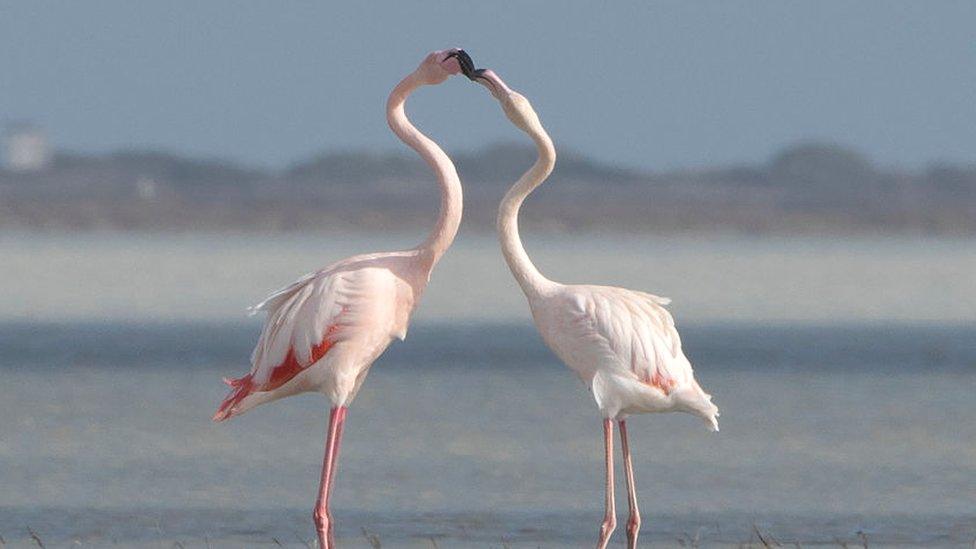Nature's true value overlooked in decision making - IPBES
- Published
- comments

Nature has multiple values that aren't all recognising in policy, say scientists
Understanding the true value of nature is key to addressing the global biodiversity crisis, according to a new assessment by leading scientists.
Halting the loss of nature requires a shift away from prioritising short-term material gains, the Intergovernmental Science-Policy Platform on Biodiversity and Ecosystem Services (IPBES) says in a landmark report.
The study offers insights into the many different values of nature and how to incorporate these into decision-making.
A summary was approved on Saturday by 139 countries in Bonn, Germany.
"Shifting decision-making towards the multiple values of nature is a really important part of the system-wide transformative change needed to address the current global biodiversity crisis," said co-chair, Prof Patricia Balvanera.
"This entails redefining 'development' and 'good quality of life' and recognising the multiple ways people relate to each other and to the natural world."

Nature is part of our cultural identity and well-being as well as a resource, scientists say
The IPBES is often referred to as conservation scientists' equivalent of the IPCC - the key UN group of climate scientists. It provides policy makers with scientific assessments relating to the planet's diversity of fauna and flora, and the contributions they make to people.
"The way nature is valued in political and economic decision making is both a key driver of the loss of biodiversity and a vital opportunity to address it," the 82 scientists said in a report drawing on more than 1,000 scientific studies looking at the valuation of nature.
Commenting, Inger Andersen, executive director of the UN Environment Programme, said: "This report makes it clear that we must place science-based valuation of nature at the heart of economic decision making."

Global targets to halt the loss of nature will be set later this year
On Friday, another IPBES report approved in Bonn found that wild plants, animals and fungi support one in five people, but their future use is threatened by over-exploitation.
The sustainable use of biodiversity is one of three pillars of the UN convention on biodiversity, which will hold a key summit in Montreal, Canada, in December to agree targets on stemming biodiversity loss.
The new Global Biodiversity Framework is seen as the biodiversity equivalent of the Paris climate agreement. Biodiversity refers to all the different living things on Earth and how they fit together in a delicate web of life that we rely on for food, clean air and water.
The outcome will decide for the coming decades how the world will address the challenges of reducing the extinction risk threatening more than one million species, protecting 30% of land and sea, eliminating billions of dollars of environmentally-damaging government subsidies and restoring degraded ecosystems.
Follow Helen on Twitter, external.